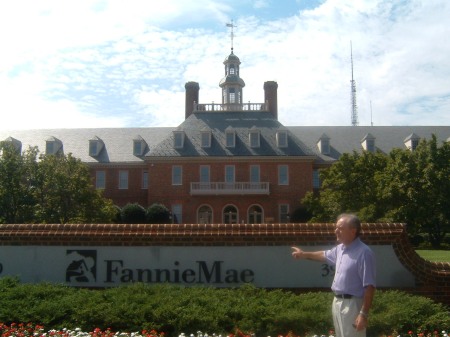The recent government buyout of Fannie Mae and Freddie Mac was happy news to many Americans. According to Treasury Secretary Henry Paulson, the government wanted to “initiate market stability, mortgage availability and tax payer protection”[1] by showing support for the wobbling lending industry. However, it is difficult to say what this action will mean in the long term. Of course, it has positive intentions, but what is it saying about our economy?
The American economic system is a big web—everything is connected. Some call it a ripple effect, where one drop has many ramifications. Some others, those who are less optimistic, may call it a domino effect: one falls, and the rest will follow.
Because the world economy is dominated by globalization, it is important to think about how the government’s buyout of the mortgage houses will affect not only the US, but the rest of the world. This step will not only encourage Americans to purchase more homes, but it will also please foreign creditors.(2) Because of our huge deficit, it is very important that the United Stats maintains the trust of foreign friends.
Everyone knows that politics and economics have a symbiotic relationship, where there is a constant exchange between the two. Yet I would argue that until recently, the American government was very reluctant to have a direct role in the American economy. The government buyout of Fannie Mae and Freddie Mac signals a new era of federal participation in the economy, recommending a huge shift on the (classic) conservative and liberal spectrum.
However, since the buyout, it has been an absolute roller coaster ride on Wall Street. Bank of America bought Merrill Lynch, Lehman Brothers filed for bankruptcy, and insurance giant AIG is in crisis. I’m sure Americans all over the country are wondering if they should just keep their money in a shoebox under the bed instead of the stock market. However, it is important to remember that this is not the Great Depression—since then, many precautions have been taken to ensure that never again will there be such a run on the banks. Examples of such precautions include back-up organizations like the FDIC and the Securities Investors Corp.
Although we are not necessarily in a major crisis, perhaps this tightening on the economy serves as a reminder to be vigilant with your money. Americans who have invested a lot of money in such assets were perhaps getting too comfortable, and of course there are many Americans who have never been comfortable at all. Thus, the government buyout of Fannie Mae and Freddie Mac sets off a whole chain of events that ultimately reminds us to pay attention to our money, our economy, and perhaps more so now than ever, our government.
Fannie Mae Headquarters at 3900 Wisconsin Avenue, N.W., Washington DC.

